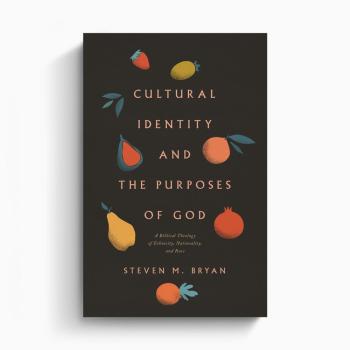Once again, it’s time for the annual dust-up in the Southern Baptist Convention. Every year, we do or say something that causes a mini-crisis in the Southern Baptist world. For those of you who have been watching Baptist news, you’ll know that this year’s event was the adoption of Resolution 9. You can read the resolution here, some thoughts on its passage here, and what I think is a fairly balanced snippet review here. You can also read a broader reflection on critical theory here, and Al Molher’s thoughts on the issue here.
Some of the more shrill voices on the internet are insisting that the SBC has adopted radically progressive racial identity politics, and might as well join the Communist Party. I’m not going to link any of these folks, but you know who they are (and frankly, they already thought that prior to the adoption of Resolution 9).
It’s not the normal purpose of this blog, but I think a few words on just what “Critical Race Theory” is and why this is such a big deal might be useful. To keep it at least loosely related to book reviews, I’ll include a few suggested sources if you want to read more at the end.
Two important disclaimers:
- My primary exposure to Critical Race Theory is through Constitutional interpretation (benefits of being a Political Scientist), so while I think I understand the broad strokes, be aware that what I say below may not apply in all situations. But because it’s what I know, those are the examples you’ll be getting.
- I have little to nothing to say about the “intersectionality” portion of the resolution. I don’t know much about it, so I’ll withhold comment.
So, with that said, just what is “Critical Race Theory”?
In the 1970s, a field of studies developed called “Critical Legal Studies.” This was the Constitutional interpretation version of postmodernism, and argued that movements like “originalism” and “living constitutionalism” (or their 1970s equivalents) are really being disingenuous. These movements claim to be trying to properly interpret the Constitution and apply that interpretation to the law justly. The reality, the Critical Legal scholars argue, is that Judges are using these ideas as smokescreens to just read their own will into the law. They’re not really reading the Constitution, they’re reading themselves. So the conservative who says “the Founders wanted every American to have a gun, and here’s a quote from Madison proving it” probably already believed that every American should have a gun long before he knew anything about the Founders. The liberal who says “the Constitution means that every American has a right to universal health care” would still believe that, even if it were somehow conclusively shown that the Constitution says no such thing. Both the Conservative and the Liberal are really just pursuing power, and the structure of our court system allows them to continue doing so, and justice gets lost in the process.
Critical Race Theory, then, looks at Critical Legal Studies, and postmodernism more broadly, and says “hey, you’ve got something right here, you just don’t quite have enough.” The system itself is flawed and unjust not only because judges and politicians are imposing their will on the nation in the name of justice, but also because from the present all the way back to the beginning the system has never been truly representative—it was created and established and is maintained by white dominance.
In part, this disillusionment with “the system” is a result of the shift in the focus of the Supreme Court. From the mid 50s through the 1970s, the Supreme Court had been very active in dealing with racial issues. But near the end of the 70s, the Court began to look in other directions (especially towards poverty issues). This meant that the traditional means of getting things done with regard to Civil Rights through the Courts were no longer working, so civil rights activists and attorneys and, eventually, professors started thinking about the nature of the legal system itself. If they can’t get justice through the system, maybe the system is broken. Maybe we need a new way to do justice.
But why is this the case? Again, it is because we live inside of a system that was shaped by a culture and a history that sets certain patterns into our subconscious and makes us act in ways that are racist, whether we intend to be or not. Most Critical Race Theory scholars will even point out that often we not only do not intend to be racist, but we are actively trying to oppose racism. The number of people who hang racial slurs on the front door of their businesses is so small as to be negligible in the 21st century, while the number of people who actively oppose such overt acts of racism is vast. And yet, that vast crowd which intentionally opposes racism is still part of a system with racism built into it. Yes, the Jim Crow laws are gone, but the culture that created them is still solidly in place.
And this gets at one of the fundamental assumptions of both Critical Legal Studies and Critical Race Theory: the law is built on culture. Simply changing the law to reflect our best intentions not to be racist can never truly solve the cultural problems that older, explicitly racist laws reflected. Instead, we need an entirely different approach to law built on a different culture—one that fully includes minorities and their cultures as well as the majority culture. What applies to law, applies to other aspects of our lives as well. Are the books we’re assigning in schools really representative of a broad spectrum of cultures that includes other ethnicities? Are the commentaries we read to help us understand the Bible written or influenced solely by Americans, or at most by Europeans living within a 500 mile radius of Geneva? Are the movies we watch and expose our children to just reinforcements of the majority cultural assumptions? And so on.
Hopefully that’s a fair and charitable explanation of Critical Race Theory (albeit one skewed towards Constitutional interpretation).
And hopefully you can see some of the appeal of this perspective for Christians. As believers, we should want to include minorities; we should resist the temptation to simply go along with the majoritarian opinion of the moment, or even with the historical cultural majority. And of course above all we should be concerned to root out any entrenched cultural sin, regardless of whether it is currently actively reflected in the law.
Likewise, these movements are very useful because they force us to reexamine our assumptions and ask basic questions like “is there anything to the law or not?” Is an 18th century Constitution written by dead white guys any good in the 21st century when we assume some sort of equality between the races and the genders? What is the relationship between representation and the law? And what is the relationship between the law and the culture? Is the law just a part of the culture, or should it be something higher and above? Does the Bible actually say what I assume it does, or have I just gone along with the assumptions of the culture I’ve been raised in? Have I been living in a way that makes racist assumptions, however deeply buried? Am I, by my words and actions, marginalizing others because of their skin color?
And yet, hopefully we can see the problems that come along with this body of thought. Certainly in the law, the arguments used by both the Critical Legal Studies and the Critical Race Theory crowds actively undermine the law by treating it as nothing more than a political creation of its socioeconomic context. That is, arguments at best say that the law is nothing more than power imposed by culture, and we are obligated to make sure that it’s our culture of the moment, not someone else’s culture, or the narrow culture of the past. Likewise, these theories ultimately undermine our confidence in the historic truths of Scripture and attempt to replace them with confidence in ourselves as living at the pinnacle of history. In dismissing everyone who came before as so tainted by their sins as to throw everything they said into question, we run the risk of falling prey to what C.S. Lewis called “chronological snobbery.”
The solution is neither to deny the sins of the past nor to reject contemporary ideas just because they’re held by people with whom we disagree politically. Instead, we should carefully and honestly consider the charges brought by Critical Race Theory. We may very well decide that they are not merited, but self-examination, especially when we are accused of sin, is integral to the Christian life and so should not be avoided–particularly when so serious a sin as racism is the charge. If we find that in fact we are committing this sin, we ought to repent with tears and strive to change accordingly.
At the same time, we should hold tightly to the truth which we received: God created us, we all rebelled against Him, we all deserve hell, and the only way to be reconciled to Him is through the substitionary atonement of the God-man Jesus Christ, who was incarnated, crucified, and resurrected on the third day. If we find that “racism” is being used not as a legitimate charge against sin in us and in society, but rather to undermine one of these great truths, then we need to politely thank the Critical Race Theory crowd for their time, clearly share the Gospel with them, and be on our way.
I don’t know which direction the Evangelical or Southern Baptist world will go, but I can say that this is a conversation which should be had.
If you want to know more about Critical Race Theory, here are a few places to start (I don’t necessarily endorse the content of these books, other than as a way to learn about CRT):
Reflections of an Affirmative Action Baby by Stephen Carter
Alchemy of Race and Rights: Diary of a Law Professor by Patricia Williams
And We Are Not Saved by Derrick Bell
Faces at the Bottom of the Well by Derrick Bell
Critical Race Theory: An Introduction by Richard Delgado
Civil Rights: Rhetoric or Reality by Thomas Sowell
The Content of our Character by Shelby Steele
Dr. Coyle Neal is co-host of the City of Man Podcast and an Associate Professor of Political Science at Southwest Baptist University in Bolivar, MO













